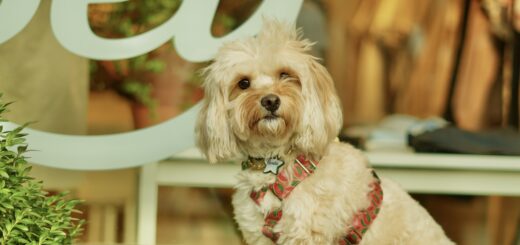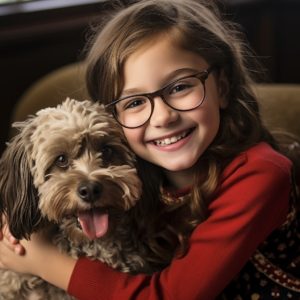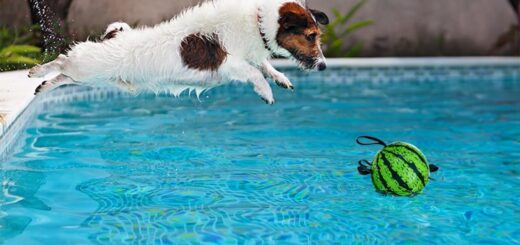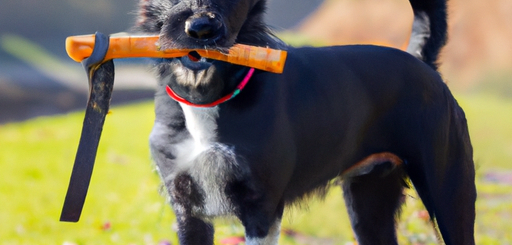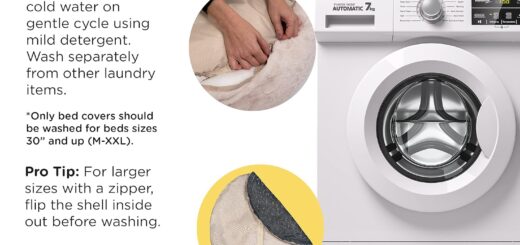Senior Dog Care: Adapting Diet, Exercise, And Healthcare For Aging Canines
In this article, you will learn about taking care of older dogs. It’s important to change their diet, give them appropriate exercise, and make sure they get the right healthcare. Just like people, dogs get older and sometimes need a little extra help to stay healthy and happy. So, if you have a senior dog or know someone who does, keep reading to find out how you can give them the best care possible!
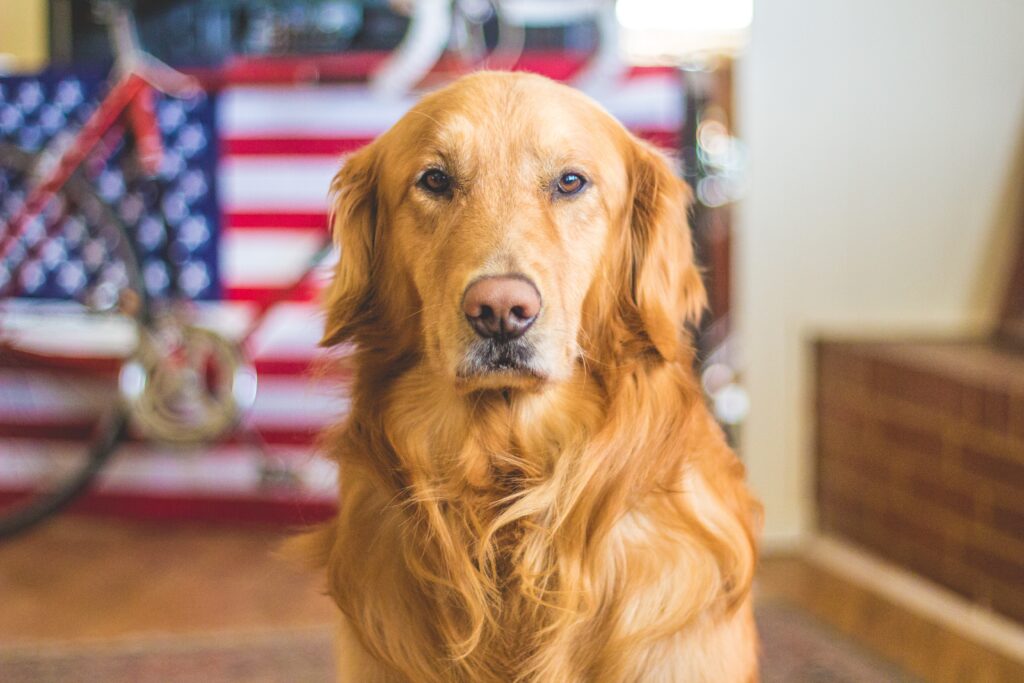
This image is property of images.unsplash.com.
Diet
Understanding nutritional needs of senior dogs
As dogs age, their nutritional needs can change. It’s important to understand what your senior dog needs in order to keep them healthy and happy. Senior dogs typically require fewer calories than younger dogs, as their metabolism slows down. However, they still need a balanced diet that provides all the necessary nutrients. Talk to your veterinarian to determine the best diet for your senior dog.
Benefits of a balanced diet
Feeding your senior dog a balanced diet has many benefits. A well-balanced diet can help maintain their overall health and well-being. It can provide the necessary nutrients to support their immune system, which becomes weaker as they age. A balanced diet can also help manage weight, prevent obesity, and reduce the risk of developing certain health conditions. It’s important to choose a dog food that is specifically formulated for senior dogs to ensure they are getting the right nutrients.
Choosing the right food for senior dogs
When choosing a food for your senior dog, look for options that are labeled specifically for senior dogs. These foods are formulated to meet the nutritional needs of older canines. They often contain lower fat and higher fiber levels to support weight management and promote digestive health. Additionally, they may have added glucosamine and chondroitin to support joint health. Always read the labels and consult with your veterinarian to find the best food for your senior dog.
Considerations for senior dogs with specific health issues
Some senior dogs may have specific health issues that require special dietary considerations. For example, dogs with kidney disease may need a diet low in protein and phosphorus. Dogs with food allergies or sensitivities may require a limited ingredient diet. If your senior dog has any health conditions or allergies, consult with your veterinarian to find a suitable diet that meets their specific needs.
Exercise
Importance of regular exercise for senior dogs
Even though senior dogs may not have the same energy levels as when they were younger, regular exercise is still important. Exercise helps maintain muscle tone, joint mobility, and mental stimulation. It can also help prevent weight gain and keep your senior dog at a healthy weight. Regular exercise can improve their overall quality of life and help them stay happy and active in their later years.
Adapting exercise routines for older canines
While exercise is necessary, it’s important to adapt the exercise routines for older canines. Avoid high-impact activities that can put stress on their joints, such as jumping or running for long periods. Instead, opt for low-impact exercises that are easier on their bodies. Consider activities such as leisurely walks, gentle swimming, or short play sessions. Adjust the duration and intensity of exercise based on your senior dog’s abilities and any existing health conditions.
Low-impact exercise options for senior dogs
Low-impact exercises are great for senior dogs as they provide physical activity without placing too much strain on their joints. Swimming is an excellent low-impact exercise that is gentle on the joints and helps strengthen muscles. Short and slow walks are also a good option, allowing them to get some fresh air and exercise without overexerting themselves. Interactive toys and puzzle games can provide mental stimulation and light physical activity.
Recognizing signs of discomfort or fatigue during exercise
It’s important to pay attention to your senior dog during exercise to ensure they are not experiencing any discomfort or fatigue. Signs of discomfort may include limping, excessive panting, or reluctance to participate in activities. If you notice any of these signs, it’s important to take a break and consult with your veterinarian. Senior dogs may tire more quickly than when they were younger, so it’s important to be mindful of their limitations and adjust exercise accordingly.
Healthcare
Regular veterinarian check-ups for senior dogs
Regular veterinarian check-ups are important for senior dogs to monitor their overall health and catch any potential issues early on. Your veterinarian will be able to perform a thorough examination, conduct necessary tests, and discuss any concerns you may have. They may also recommend specific vaccinations or screenings based on your dog’s age and health history. These check-ups are an opportunity to address any questions or concerns you may have regarding your senior dog’s health.
Monitoring and managing common age-related health conditions
Senior dogs are more prone to certain health conditions such as arthritis, heart disease, and kidney disease. Regular check-ups can help monitor these conditions and allow for early intervention if needed. Your veterinarian may recommend specific treatments or medications to manage these conditions and improve your senior dog’s quality of life. It’s important to follow their advice and maintain open communication with your veterinarian regarding any changes or concerns.
Proper dental care for senior dogs
Dental care is often overlooked but is crucial for the overall health and well-being of senior dogs. As dogs age, they are more susceptible to dental issues such as gum disease and tooth decay. Regular dental care, including brushing your dog’s teeth and providing dental treats or toys, is important to maintain good oral hygiene. Your veterinarian may also recommend professional dental cleanings to remove any tartar or plaque buildup.
Administering medication and supplements to aging canines
Many senior dogs may require medication or supplements to manage age-related health conditions. It’s important to follow your veterinarian’s instructions and administer medications or supplements as prescribed. Some medications may need to be given with food, while others need to be given at specific times. If you have any concerns or questions about administering medications or supplements to your aging canine, consult with your veterinarian for guidance.
Joint Health
Understanding common joint issues in senior dogs
As dogs age, they are more prone to joint issues such as arthritis and hip dysplasia. These conditions can cause pain, stiffness, and mobility issues for senior dogs. Understanding these common joint issues can help you take steps to support your dog’s joint health and improve their quality of life. Regular check-ups and discussions with your veterinarian can help identify any joint issues early on and develop a plan for managing them.
Providing proper nutrition for joint health
Proper nutrition plays a vital role in supporting joint health in senior dogs. Choosing a dog food that contains glucosamine and chondroitin can help promote joint health and reduce the risk of developing joint issues. These nutrients help maintain the structure and function of joints, keeping them healthy and mobile. Additionally, foods rich in Omega-3 fatty acids can help reduce inflammation and provide added support for joint health.
Supplements and medications for joint support
In addition to a balanced diet, supplements and medications can also provide support for joint health in senior dogs. Your veterinarian may recommend joint supplements that contain ingredients like glucosamine, chondroitin, and MSM to help reduce inflammation and support cartilage health. In some cases, they may also prescribe medications to manage pain and improve joint mobility. It’s important to follow your veterinarian’s advice and give any supplements or medications as directed.
Exercise strategies to maintain joint mobility
Regular exercise is important for maintaining joint mobility in senior dogs. However, it’s important to choose exercise strategies that are gentle on their joints and minimize stress. Low-impact exercises such as swimming and short walks can help maintain muscle tone and support joint mobility. Avoid excessive jumping or rough play that can worsen joint issues. If you have concerns about your dog’s joint health or exercise routine, consult with your veterinarian for guidance.
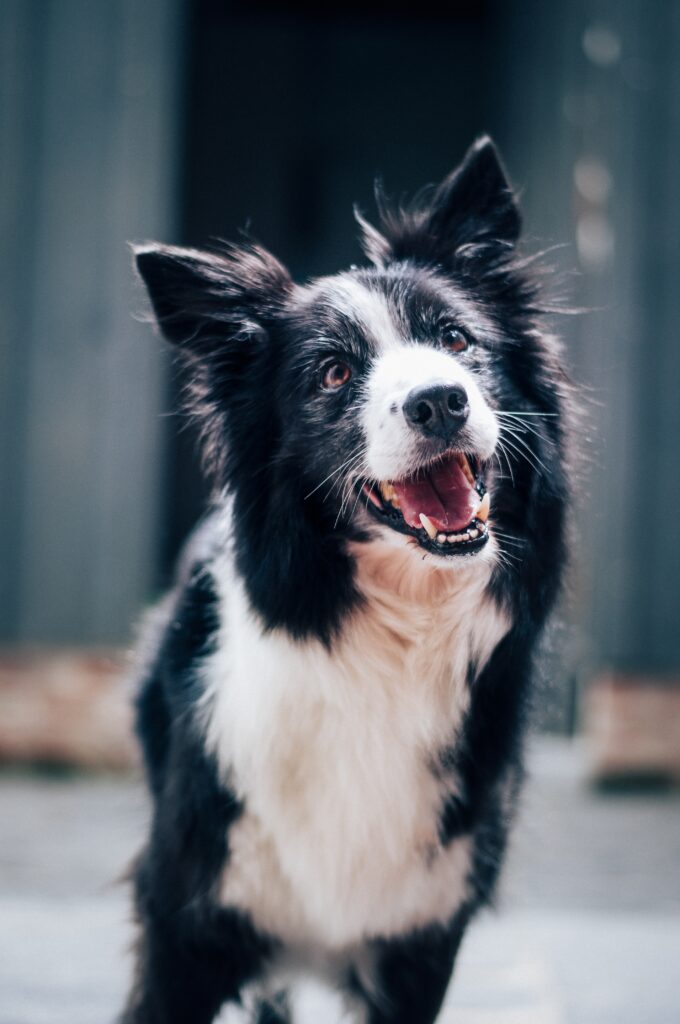
This image is property of images.unsplash.com.
Dental Care
Importance of dental hygiene for senior dogs
Maintaining good dental hygiene is crucial for senior dogs. Dental issues can cause pain and discomfort, and may even lead to other health problems if left untreated. Regular dental care can help prevent gum disease, tooth decay, and bad breath. It’s important to make dental care a part of your senior dog’s routine to ensure their teeth and gums stay healthy.
Regular brushing and professional dental cleanings
Regular brushing is one of the most effective ways to maintain good dental hygiene in senior dogs. Use a toothbrush and toothpaste specifically designed for dogs, and gently brush their teeth at least a few times a week. If your dog resists brushing, start slow and gradually increase the duration. Additionally, professional dental cleanings performed by a veterinarian may be necessary to remove any tartar or plaque buildup.
Signs of dental problems in aging canines
It’s important to be aware of the signs of dental problems in aging canines. Signs may include bad breath, swollen or bleeding gums, difficulty eating, and excessive drooling. If you notice any of these signs, it’s important to contact your veterinarian for a dental examination. Prompt treatment can help prevent further complications and improve your senior dog’s oral health.
Dental-friendly treats and toys
In addition to regular brushing and professional cleanings, dental-friendly treats and toys can also contribute to good dental health in senior dogs. Dental chews and toys that are specifically designed to promote oral hygiene can help remove plaque and tartar buildup. Look for products that are approved by veterinary dentistry associations and consult with your veterinarian to find the best options for your senior dog.
Cognitive Health
Recognizing signs of cognitive decline in senior dogs
As dogs age, they may experience cognitive decline, which is similar to dementia in humans. Signs of cognitive decline in senior dogs may include confusion, disorientation, changes in sleep patterns, and loss of housetraining. It’s important to recognize these signs and seek veterinary guidance. Early intervention and appropriate management strategies can help slow down cognitive decline and improve your senior dog’s quality of life.
Mental stimulation and enrichment activities
Keeping your senior dog mentally stimulated is important for their cognitive health. Engage them in activities that challenge their brain, such as puzzle toys, obedience training, or interactive games. Offer new toys or rotate their existing toys to provide variety and prevent boredom. Spending quality time with your senior dog and providing social interaction can also help stimulate their mind and keep them mentally sharp.
Dietary supplements for cognitive support
Some dietary supplements may help support cognitive function in senior dogs. Antioxidants such as vitamins C and E, as well as Omega-3 fatty acids, have been shown to have potential benefits for cognitive health. However, it’s important to consult with your veterinarian before starting any supplements to ensure they are safe and appropriate for your senior dog. Your veterinarian can recommend the right supplements and dosage based on your dog’s individual needs.
Seeking veterinary guidance for cognitive issues
If you suspect that your senior dog is experiencing cognitive decline, it’s important to seek veterinary guidance. Your veterinarian can evaluate their symptoms, rule out any underlying medical conditions, and recommend appropriate management strategies. They may suggest medications or behavioral modifications that can help slow down cognitive decline and improve your dog’s quality of life.
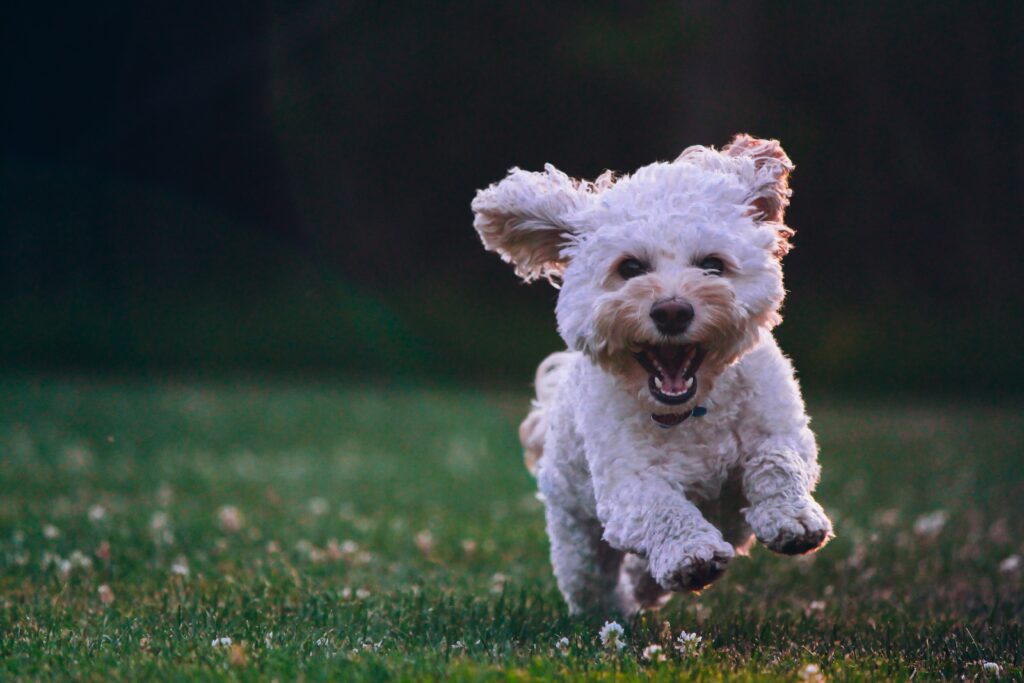
This image is property of images.unsplash.com.
Sensory Changes
Understanding age-related changes in vision and hearing
As dogs age, they may experience changes in their vision and hearing. They may develop conditions such as cataracts, glaucoma, or hearing loss. Understanding these age-related changes can help you provide the necessary support and accommodations for your senior dog. Regular check-ups with your veterinarian can help monitor their sensory health and catch any issues early on.
Creating a safe environment for senior dogs with sensory impairments
Creating a safe environment is crucial for senior dogs with sensory impairments. Keep their living space free from potential hazards and obstacles that may pose a risk to their safety. Use gates or barriers to prevent access to areas that may be difficult for them to navigate. Consider placing textured mats or rugs to provide traction for dogs with vision or balance issues. Providing them with familiar scents and sounds can also help them feel more comfortable and secure in their environment.
Use of visual and auditory cues for communication
As dogs age and their sensory abilities change, visual and auditory cues can be helpful for communication. Use clear hand signals or gestures to give commands or indicate your intentions. Speak in a clear and steady voice to help them understand verbal cues. Positive reinforcement and rewards can also reinforce desired behaviors and strengthen the bond between you and your senior dog.
Assistive devices and lifestyle modifications
In some cases, assistive devices or lifestyle modifications may be necessary to support senior dogs with sensory impairments. For example, a dog with vision loss may benefit from a harness or guide dog techniques to navigate their surroundings. Dogs with hearing loss may respond well to vibrating collars or visual cues. Discuss any concerns or challenges you may have with your veterinarian, who can provide guidance on the best approach for your senior dog.
Weight Management
Importance of maintaining a healthy weight in senior dogs
Maintaining a healthy weight is important for senior dogs as it can help prevent various health issues and improve overall quality of life. Obesity in dogs can lead to joint problems, heart disease, diabetes, and other health complications. It’s important to monitor your senior dog’s weight and take steps to ensure they maintain a healthy body condition.
Understanding the impact of weight on overall health
Excess weight can put additional strain on a senior dog’s joints and organs, exacerbating age-related issues. It can also increase the risk of developing new health conditions. Maintaining a healthy weight helps reduce the strain on joints, improves mobility, and lowers the risk of developing obesity-related health issues. It’s important to work with your veterinarian to determine the ideal weight for your senior dog and establish a plan for achieving and maintaining it.
Caloric adjustments for aging canines
As senior dogs have lower activity levels, their caloric needs change. Older dogs typically require fewer calories to maintain a healthy weight. Consult with your veterinarian to determine the appropriate caloric intake for your senior dog based on their age, activity level, and overall health condition. They can provide guidance on proper portion sizes and recommend specific dietary adjustments to ensure your dog receives the appropriate nutrition without excess calories.
Exercise routines to support weight management
Regular exercise is vital for weight management in senior dogs. While the intensity and duration of exercise may need to be adjusted, engaging in physical activity helps burn calories and maintain muscle tone. Low-impact exercises such as swimming, short walks, or gentle play sessions can be suitable for senior dogs. Regular exercise, coupled with a balanced diet, can help your senior dog maintain a healthy weight and overall well-being.

Grooming
Adapting grooming routines for senior dogs
Grooming is an essential part of maintaining the health and comfort of senior dogs. However, it’s important to adapt grooming routines to accommodate their changing needs. Older dogs may require more frequent brushing to prevent matting or tangles in their fur. Take it slow and be gentle when grooming to avoid causing any discomfort. If your senior dog has mobility issues, consider using grooming tools with longer handles or seek professional grooming services if necessary.
Skin and coat care in aging canines
As dogs age, their skin and coat may undergo changes, such as dryness or thinning. Regular brushing can help distribute natural oils and keep the coat healthy. Use a gentle brush or comb suitable for your senior dog’s coat type. If you notice any changes in their skin, such as redness or rashes, consult with your veterinarian. They can recommend appropriate shampoos, conditioners, or supplements to support skin and coat health.
Trimming nails and managing paw health
Trimming your senior dog’s nails is an important part of routine grooming. Long nails can cause discomfort and affect mobility. Use clippers or a grinder specifically designed for dogs and be cautious not to cut too close to the quick. If you’re unsure how to trim your dog’s nails safely, consult with a professional groomer or your veterinarian for guidance. Additionally, regularly inspect your dog’s paws for any signs of injury or abnormalities, such as sores or cracked paw pads.
Checking for lumps, bumps, and other skin abnormalities
Regularly check your senior dog’s skin for any lumps, bumps, or other skin abnormalities. Skin masses can be more common in older dogs and may require veterinary evaluation. Pay attention to any changes in size, shape, or texture of existing lumps or bumps. If you notice any new growths or abnormalities, schedule an appointment with your veterinarian for a thorough examination. Early detection and intervention can contribute to better outcomes for your senior dog.
Environmental Modifications
Creating a senior-friendly living environment
Creating a senior-friendly living environment is crucial for the comfort and safety of your aging canine companion. Ensure that their living space is free from obstacles or hazards that may pose a risk to their mobility. Provide ramps or steps to help them access elevated surfaces such as beds or couches. Place non-slip mats or rugs in areas where they frequently walk to prevent slipping or falling. Creating a comfortable and accommodating environment can greatly enhance your senior dog’s quality of life.
Providing comfortable and accessible resting areas
Senior dogs require comfortable and accessible resting areas to ensure they can rest and relax properly. Provide soft and supportive bedding that is easy for them to get in and out of, especially if they have joint issues or mobility limitations. Consider placing their bed or blanket in a quiet and warm location, away from drafts or loud noises. Offering a cozy and inviting resting area can help your senior dog get the rest they need.
Addressing potential hazards and obstacles
Identify and address potential hazards and obstacles in your home that may pose a risk to your senior dog’s safety. Secure loose cords or wires that they may trip on. Use baby gates or barriers to restrict access to areas that may present challenges for their mobility. Keep toxic substances, medications, and small objects out of reach. Regularly inspect your home and make necessary modifications to ensure a safe environment for your senior dog.
Assistance devices and mobility aids
In some cases, assistance devices or mobility aids may be needed to support your senior dog’s mobility. For dogs with mobility issues, mobility aids such as slings or carts can help them move around more easily. Ramps or steps can assist them in accessing higher surfaces. Additionally, consider using non-slip booties or socks to provide traction on slippery surfaces. Consult with your veterinarian or a professional canine physical therapist to determine if any assistive devices or mobility aids would benefit your senior dog.
Taking care of a senior dog requires some adjustments and considerations, but it’s important to provide them with the love, care, and attention they deserve in their golden years. By understanding their changing needs and making appropriate adaptations, you can help ensure that your senior dog enjoys a healthy, happy, and comfortable life for as long as possible. Regular check-ups, a balanced diet, appropriate exercise, and a safe and accommodating environment are key components of senior dog care. Always consult with your veterinarian for personalized advice and guidance based on your senior dog’s individual needs.




